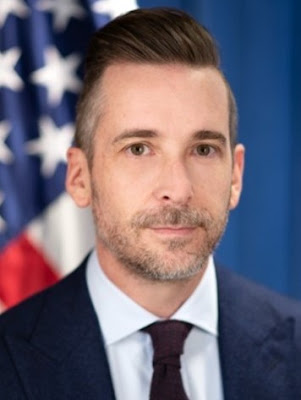Broad + Liberty ran my piece on a look back at Watergate.
You can read the
piece via the below link or the below text:
Paul Davis: "The White House Plumbers," a look back at Watergate (broadandliberty.com)
The late comedian
Redd Foxx once joked, “I call my wife Watergate — ’cause she bugs me.”
I was a young man
and Nixon supporter during the Watergate scandal, and I followed the daily
unfolding news closely. The unsuccessful break-in and bugging of the Democratic
National Committee’s offices at the Watergate Office Building in Washington,
D.C. on June 17, 1972 led to President Nixon’s resignation after he had been
reelected overwhelmingly against his Democratic challenger, Senator George
McGovern.
I’ve been
reliving those dramatic times by watching HBO’s “The White House Plumbers.”
“This five-part
limited series imagines the behind-the-scenes story of how Nixon’s political
saboteurs, E. Howard Hunt (Woody Harrelson) and G. Gordon Liddy (Justin
Theroux), accidentally toppled the presidency they were zealously trying to
protect… and their families along with it,” HBO.com states in describing “The
White House Plumbers.” “Chronicling actions on the ground, this satirical drama
begins in 1971 when the White House hires Hunt and Liddy, former CIA and FBI,
respectively, to investigate the Pentagon Papers leak. After failing upward,
the unlikely pair lands on the Committee to Re-Elect the President, plotting
several unbelievable covert ops — including bugging the Democratic National
Committee offices at the Watergate complex. Proving that fact is sometimes
stranger than fiction, White House
Plumbers sheds light on the lesser-known series of events that led to
one of the greatest political scandals in American history.”
READ MORE — Paul Davis: From China, with love
Curiously, the
most absurd scenes in the series are completely historically accurate. Although
Liddy was a former FBI special agent and prosecutor and Hunt was a veteran
intelligence officer who enlisted his former CIA Cuban-American veteran
operatives, their failures are spectacularly farcical. While the scandal was
unfolding, Nixon can be heard on his White House recorded tapes calling the
burglary “a comedy of errors.”
I’m enjoying the
series, but my one complaint is that the families of Liddy and Hunt are
portrayed in the series. This is uncalled for and unfair, as the families
committed no crimes, and they are not public figures.
“The White House
Plumbers” is based in part on Egil “Bud” Krogh’s memoir, “Integrity: Good
People, Bad Choices, and Life Lessons from the White House.” Krogh was the boss
of the White House’s Special Investigations Unit, informally called the
“Plumbers,” as their goal was to stop the leaks to the press.
At first, the
White House described the Watergate break-in a “third-rate burglary.” But as
new evidence surfaced and the Nixon White House attempted to cover up the
crime, this third-rate burglary elevated to a national scandal.
Although Washington Post reporters Carl
Bernstein and Bob Woodward are often credited for cracking the Watergate case,
it was the FBI and the federal prosecutors who investigated the case and
prosecuted those involved. The Post’s reporters
merely published the information provided to them by Mark Felt, a senior
disgruntled FBI official who believed he had been passed over. Woodward and
Bernstein called their source “Deep Throat.”
Felt gave the
reporters inside information from the FBI’s investigation — an illegal act, and
one that hurt the defendants’ constitutional right to a fair trial.
Woodward went on
to publish best-selling nonfiction books and Bernstein went on to become a
frequent commentator on CNN and other liberal networks, offering his mantra,
“This is worse than Watergate” when describing various Trump actions.
(Greg Gutfeld on
Fox News’ “Gutfeld!” has played a funny video montage of Bernstein repeating
his mantra “Worse than Watergate” time and again).
I thought that
Hunt and Liddy, two first-time offenders with fairly accomplished careers as
government employees, received harsh prison sentences. Non-political people
convicted of similar crimes with similar backgrounds would have been given a
much less harsh sentence.
In the case of Hunt, he had just lost his wife in a plane crash, effectively leaving his four children parentless when he entered prison. Hunt, a prolific writer of spy and crime thrillers, wrote a memoir called, “American Spy: My Secret History in the CIA, Watergate & Beyond.”
“I’ve been called
many things since the foiled break-in of the Democratic National Committee
headquarters at the Watergate complex, including a criminal mastermind, a
bungling burglar, and even a bad spy novelist,” Hunt wrote in the introduction.
“I don’t know which accusation hurts most. Two are outrageous overstatements
and one is a matter of opinion. Need I explain which is which?
“Whatever the
case, none of them describe the whole man, and all disregard over two decades
of service to the United States, first as a sailor in World War II, then as an
OSS (Office of Strategic Services) operative, segueing into many years as
a CIA agent.”
Once the Nixon
White House tapes were released following a court order, Nixon was exposed as
attempting to cover up the crime. Threatened to be impeached, Nixon resigned,
and he was later pardoned by his successor, President Gerald Ford. The pardon
prompted Ford to state, “Our long national nightmare is over.” The pardon,
which was a bold and brave move for Ford to take, probably caused him to lose
to Jimmy Carter.
Even worse, in my
view, the exit of Nixon from the White House in effect greenlighted the North
Vietnamese Army to invade South Vietnam. After the 1973 Paris agreement that
ended America’s combat role in the Vietnam War, Henry Kissinger stated that
Nixon told him to convey to the North Vietnamese that he would “nuke” the North
Vietnamese if they invaded the South. The Communists believed him.
But after Nixon
resigned, President Ford was unable to get the Democrat-led Congress to provide
material support to the South Vietnamese (he did not ask for American ground
troops), and the South fell to the Communists.
It bears noting
the North Vietnamese did not defeat the American military. The Communists never
won a battle against American troops over company strength during the entire
war. When the North Vietnamese invaded the south, there were no American combat
troops there, only support troops. The North Vietnamese defeated the South
Vietnamese, not America.
Had Watergate not
happened, and Nixon remained in office, I believe Vietnam would look much like
North and South Korea. But after Nixon resigned after attempting to cover up
Watergate, America lost the political will to contain the North Vietnamese.
In my view,
Watergate led to the fall of South Vietnam.
Here’s another
old Watergate joke I recall from MAD magazine: The burglars could not find Ellsberg’s
file, as they looked under “L.”
Paul Davis, a Philadelphia writer and frequent contributor to Broad + Liberty, also contributes to Counterterrorism magazine and writes the On Crime column for the Washington Times.


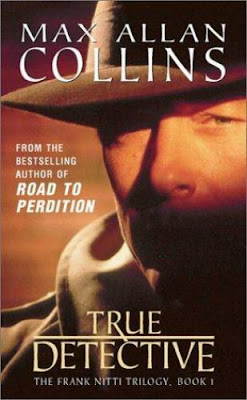
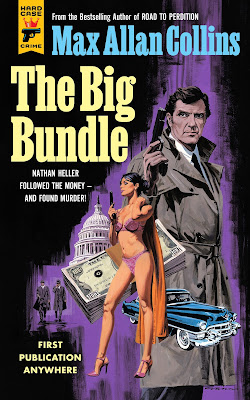


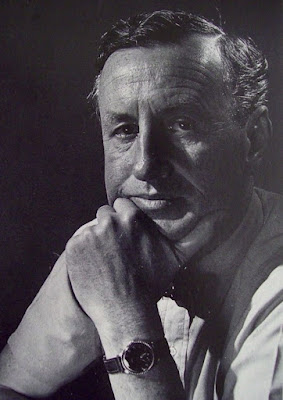

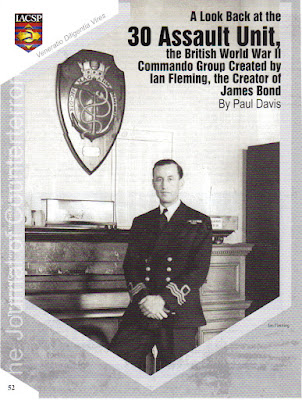








.jpg)







.jpg)











